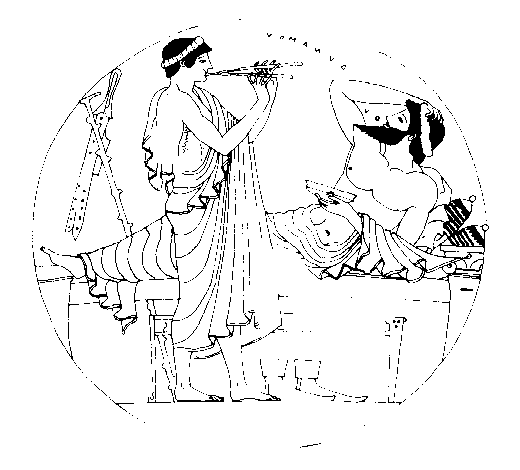Ahh, Valentine's Day. A time of love and affection and candy hearts that taste like chalk. But where did this amorous holiday originate, and how do we relate to those beginnings 1511 years later?
With a bit of research, I found that St. Valentine's day began as a Roman ritual which preceded the founding of Rome itself.
The ceremony, known as Lupercalia, was held near the Lupercal cave and directed by the Luperci (Brothers of the wolf). The festival began with the sacrifice of two male goats and a dog. Then two young Luperci were led to the altar, and their foreheads anointed with sacrificial blood wiped from the knife by milk-soaked wool.
"The sacrificial feast followed, after which the Luperci cut thongs from the skins of the victims, which were called Februa, dressed themselves in the skins of the sacrificed goats, in imitation of Lupercus, and ran round the walls of the old Palatine city, the line of which was marked with stones, with the thongs in their hands in two bands, striking the people who crowded near. Girls and young women would line up on their route to receive lashes from these whips. This was supposed to ensure fertility, prevent sterility in women and ease the pains of childbirth."
The ritual survived until 496 AD. At this time, pagan rituals had been outlawed, and Pope Gelasius changed it to the Purification of the Virgin; The feast of Saint Valentine.

More information on the Lupercalia can be found here: http://www.sacred-texts.com/bos/bos607.htm






